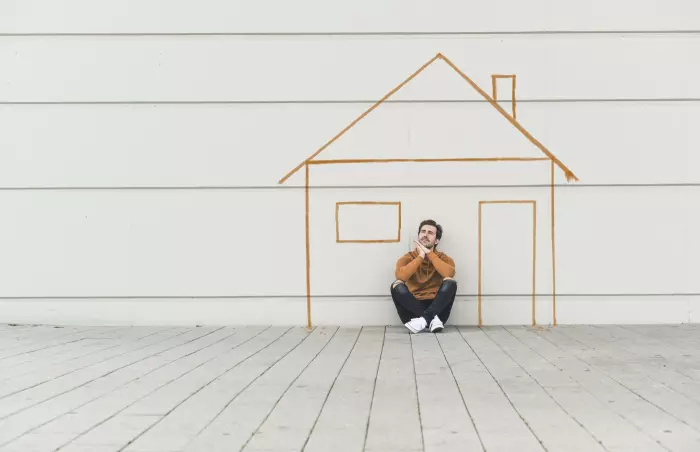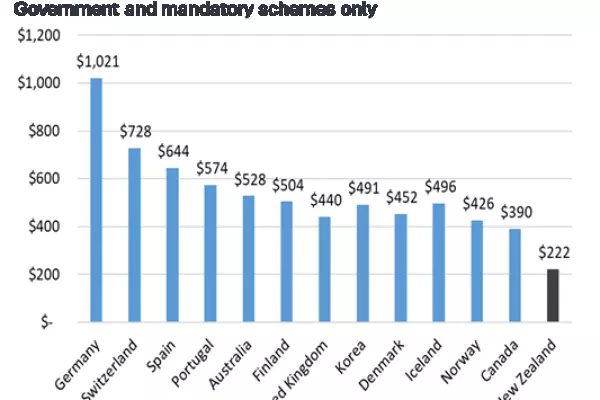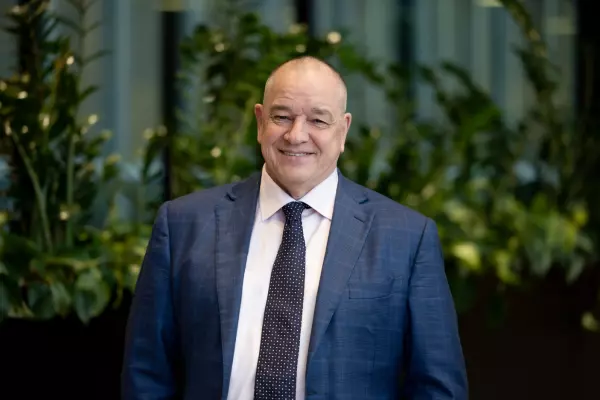BusinessDesk investments editor Frances Cook responds to emails from readers each week, answering questions about money. Below, you will find her expert advice. Send your questions to [email protected].
Hi Frances,
Thanks to my amazing partner taking care of our finances for the next four or five years, I am going to be studying to be a midwife (I have to do an additional course, so it's added an extra year of study).
We have a 14-month-old baby, and my partner has suggested we stop throwing money away by renting and instead purchase a two-bedroom apartment (since we cannot afford anything bigger on his wage alone) and in five or so years, when I have my career and can contribute financially then we sell our apartment and buy a bigger family home.
I think this does sound like a smart idea, but I don't think living in a small apartment for that long is going to be comfortable for our family because of the lack of space and the lack of a backyard.
I think we should just keep renting so we can be comfortable in our home, even though that means half a decade passes where we could have paid off a big chunk of our mortgage.
Thank you,
.A
Hi A,
First of all, congrats on your plan to become a midwife. It’s a career full of amazing people, and I hope you find it really rewarding.
In terms of your money question, this is a perfect example of how these issues are never just about money. It’s also about your values and how you want to live your life.
So, I don’t have a neat answer for you. But I have some things I’d like you to think about, which could make it a little clearer for you.
‘Throwing money away’
I just want to gently push back on the idea of throwing money away by renting.
If you buy a house at the wrong time, that can be worse. Interest rates can go up or down, making the mortgage more expensive. House values can go up or down, making it difficult to sell if you get into financial difficulties. It’s not a one-way ticket to financial success.
I’m not someone who thinks you have to buy a house to be financially stable. You can save in other ways, like the share market, if it’s not the right time for you to buy.
However, there is also a reality that owning a home often gives you more stability, which may be helpful if you’re in the family stage of life.
It also sounds like it’s a life goal for you and your partner, which means you want to buy a house at some point.
If that’s the case, then buying when you’re able to can be a better idea than waiting for a point in the future when you expect things to be more in your favour.
There are no guarantees that you will still be able to buy in the future. Situations can change rapidly.
The only constant is change
While house prices can go up and down in the short term, in the long run, house prices tend to go up.
So, if you have a deposit that could cover a small house or apartment now, there’s no guarantee that it will still cover you five years from now. You run the risk of an unexpected housing boom, which outruns your deposit.
You could also face increased rent over the next five years, which makes it difficult for you to save for a bigger home.
I don’t have a crystal ball that works better than anyone else’s. If I did, I’d be looking after myself and getting all my money into whatever was about to boom.
But here are the risk factors for house price increases over the next few years.
The National government has clearly signalled it wants to increase immigration. More people means more people needing housing. Increased competition is likely to increase rents and house prices.
The new government also has some changes on the cards that are more landlord-friendly. That makes housing a more attractive investment, once again increasing the number of people who want to buy and possibly pushing up prices.
Even without these factors, we’ve seen signs that house prices are going up again. They’ve had a rough year through 2023, but it seems we’ve hit the bottom, and they’re slowly inching up again.
That means it may be more achievable to buy right now. Waiting five years could mean you find you can’t actually afford it, whether a big or small house.
None of this is meant to panic you or push you to buy something, anything, whether or not it’s the right house for you. Buying out of panic is probably not a good idea either.
I just want you to take into consideration that the market can move, so that’s part of your pros and cons list.
Apartment vs family home
If you wait to get a bigger home, I think you may end up waiting for more than five years.
Again, as long as that’s an informed choice, it’s not necessarily a bad thing. But it is something that I’d like you to consider.
The first home is almost always a compromise. Few people buy a bigger family home as their first home.
Instead, first-home buyers usually look for something that fits their current needs, but is possibly smaller, or further out of town, or any other compromises that let you buy for a lower price.
They live there for a few years, paying off some of the mortgage as a form of continuing to save and eventually upgrade from there.
If you’re going to be studying and living on one income over this time, will you be able to also keep saving for a deposit for a larger home? Especially given the possibility that rents could go up over this time?
As your child gets older, the space issue is likely to become more pressing, not less.
Yes, it would probably have been easier to live in a smaller apartment while it was just the two of you, but it's also probably easier to live in an apartment with a baby rather than when it's a small child who is mobile and full of energy.
Don't start me on the space requirements for a teenager; there's probably no home that's up to the task.
That means it's likely easier today to make the shorter-term sacrifice of living in a smaller place than it will be tomorrow.
If you’re confident in being able to keep saving and adding to your home deposit, that’s one thing.
But if the deposit amount is likely to stay the same, and then you start saving hard when you’re both earning, you might find you’re putting off buying a home for 7-10 years instead of five.
Apartment comforts
I do wonder if there are apartments out there that could tick more of your family living boxes.
Some are built with family living in mind, such as having a playground nearby or shared outdoor spaces for all residents to enjoy.
Not all apartments are tiny, so depending on what city you live in, is it possible to find one with a smidge more space where your family won’t feel so crowded?
You could include townhouses or units in your property search. They’re also often at the cheaper end of the property market but may be more suited to your family life.
I know people often don’t trust real estate agents (and yes, you should take conversations with a grain of salt when you’re talking to someone who’s trying to sell you something), but it could be worth going into a couple of real estate offices, telling them your budget, and asking what they think you could realistically get in the area.
Tell them your priorities and be honest.
Real estate agents know what types of homes are being listed and may know hidden gems you didn’t realise were available.
If they don’t, well, the only thing you’ve wasted is your time.
Weigh it up
When I’m struggling to look at options, I’ve found it’s helpful to look at which one has the bigger possible downside risk.
So, on one side, there’s the possibility of ending up in a house that’s a bit cramped, you trip over each other for a few years, and yes, that could be quite irritating.
On the other, there’s the possibility of missing a moment when house prices are more affordable, and having to wait many more years before starting the journey of paying off a mortgage.
Neither of those are certainties, just the worst-case outcomes. I know which one would worry me more, though.
Send questions to [email protected] if you want to be featured in the column. Emails should be about 200 words, and we won't publish your name. Unfortunately, Frances is not able to respond to every email received or offer individual financial advice.
Information in this column is general in nature and should not be taken as individual financial advice. Frances Cook and BusinessDesk are not responsible for any loss a reader may suffer.














